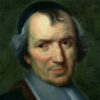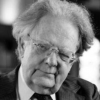When you’re surrounded by people who share the same set of assumptions as you, you start to think that’s reality.
Emily Levine (1944-2019) American humorist, writer, actress, speaker
“A Theory of Everything,” TED Talk, Monterey, California (Feb 2002)
(Source)
Quotations about:
premises
Note not all quotations have been tagged, so Search may find additional quotes on this topic.
Although we have already spoken in the First Part touching the utility of the definition of terms, it is nevertheless so important, that we cannot have it too much impressed on our minds, since we may by it clear up a number of disputes, which have as their subject often only the ambiguity of terms, which one takes in one sense, and another in another. So that some of the greatest controversies would cease in a moment, if one or the other of the disputants took care to make out precisely, and in a few words, what he understands by the terms which are the subject of dispute.
Antoine Arnauld (1612-1694) French theologian, philosopher, mathematician
Logic, or the Art of Thinking [La Logique ou l’art de penser; The Port-Royal Logic], Part 4, ch. 4 (1662) [with Pierre Nicole] [tr. Baynes (1850)]
(Source)
Alternate translation:Although we have already spoken in Part I about the usefulness of defining one's terms, this is, however, so important that we cannot bear it too much in mind, since this is how countless disputes are cleared up whose cause is often merely an ambiguity in terms that one person takes one way and another person another way. Accordingly, some very serious arguments would cease in an instant if either of the disputants took the care to indicate clearly, in a few words, the meanings of the terms that are the subject of dispute.
[tr. Buroker (1996)]
Man lives, not directly or nakedly in nature like the animals, but within a mythological universe, a body of assumptions and beliefs developed from his existential concerns.
Northrop Frye (1912-1991) Canadian literary critic and literary theorist
The Great Code: The Bible and Literature, Introduction (1982)
(Source)
The judgments which Johnson passed on books were, in his own time, regarded with superstitious veneration, and, in our time, are generally treated with indiscriminate contempt. They are the judgments of a strong but enslaved understanding. The mind of the critic was hedged round by an uninterrupted fence of prejudices and superstitions. Within his narrow limits, he displayed a vigour and an activity which ought to have enabled him to clear the barrier that confined him. How it chanced that a man who reasoned on his premises so ably, should assume his premises so foolishly, is one of the great mysteries of human nature.
Thomas Babington Macaulay (1800-1859) English writer and politician
“Samuel Johnson,” The Edinburgh Review (Sep 1831)
(Source)
Review of John Croker's 1831 edition of James Boswell, The Life of Samuel Johnson.
What a man believes may be ascertained, not from his creed, but from the assumptions on which habitually acts.
George Bernard Shaw (1856-1950) British playwright and critic
Man and Superman, “The Revolutionist’s Handbook,” “Religion” (1903)
(Source)
When I, a thoughtful and unblessed Presbyterian, examine the Koran, I know that beyond any question every Mohammedan is insane; not in all things, but in religious matters. When a thoughtful and unblessed Mohammedan examines the Westminster Catechism, he knows that beyond any question I am spiritually insane. I cannot prove to him that he is insane, because you never can prove anything to a lunatic — for that is a part of his insanity and the evidence of it. He cannot prove to me that I am insane, for my mind has the same defect that afflicts his. All Democrats are insane, but not one of them knows it; none but the Republicans and Mugwumps know it. All the Republicans are insane, but only the Democrats and Mugwumps can perceive it. The rule is perfect: in all matters of opinion our adversaries are insane.
Mark Twain (1835-1910) American writer [pseud. of Samuel Clemens]
Christian Science, ch. 5 (1907)
(Source)
Often misattributed to Oscar Wilde.
Life is the art of drawing sufficient conclusions from insufficient premises.
Samuel Butler (1835-1902) English novelist, satirist, scholar
The Note-Books of Samuel Butler, ch. 1 “Life,” ix (1912)
Full text.







